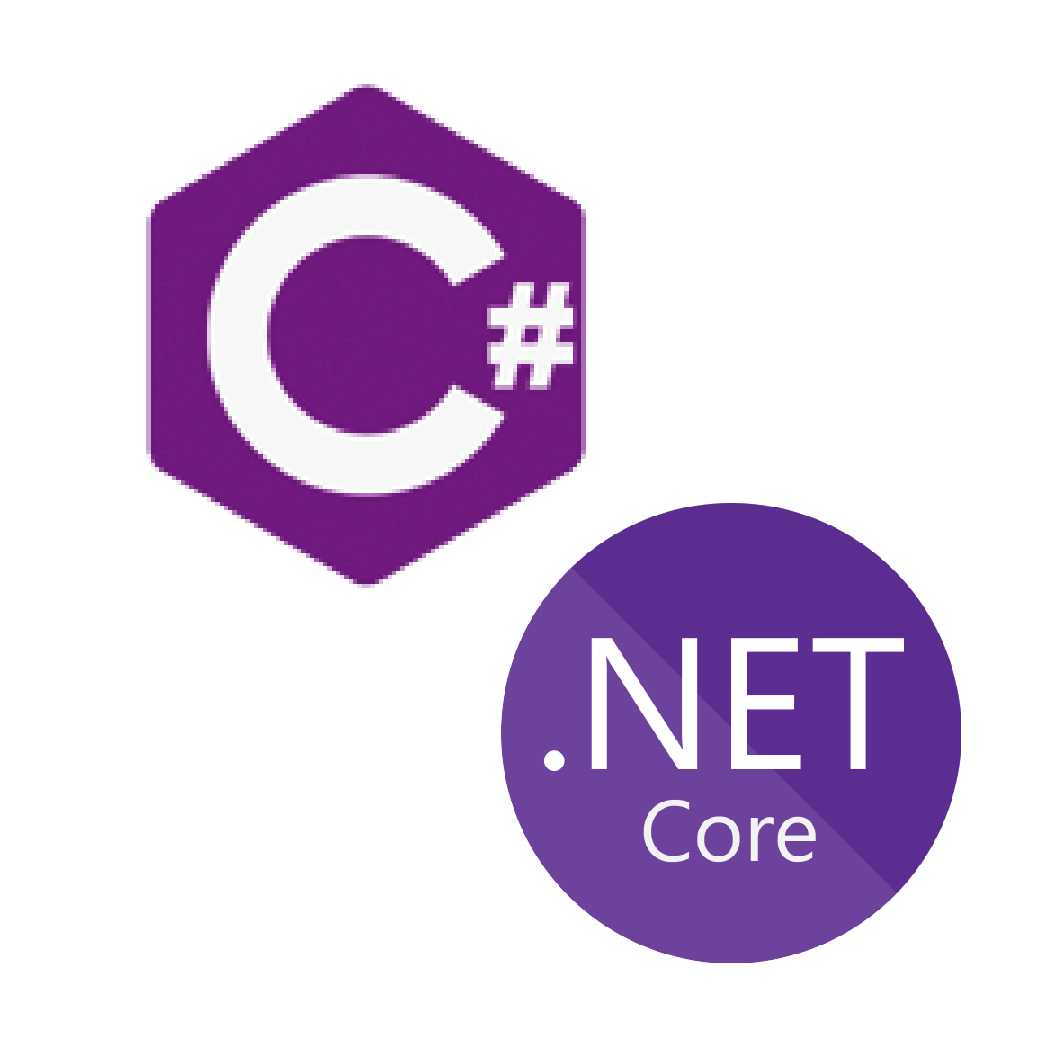C# vs .Net: The Visual Studio Ultimate Guide
Exploring the similarities and differences between C# vs .NET to help you make an informed decision for your next software project.

Everything you need to know about
C# vs .Net
C# and .NET are two popular terms that are often used interchangeably in the world of software development. However, they are not the same thing. Understanding the difference between the two can help developers decide which technology to use for their projects.
This article will explore the differences between C# and .NET, their respective advantages and disadvantages, and how they can be used together to create robust and efficient applications.
C# Overview
C# (pronounced “C Sharp”) is a modern, high-level programming language developed by Microsoft in 2000 as a part of the .NET initiative. It is an object-oriented programming language designed to be simple, efficient, and powerful. C# is used to build various applications, from desktop software to web applications, games, mobile apps, and more.
One of the most significant advantages of C# is that it is a statically-typed language. This means the data type a variable can hold is defined at compile-time, making it easier to catch errors before runtime. C# is also known for its robust type system, making writing more maintainable code easier.
C# is also object-oriented, using objects to represent data and functionality. This makes it easier to manage code complexity and reuse and maintain code over time. C# also supports other programming paradigms, such as functional and asynchronous programming (1).
“C# is intended to be suitable for writing applications for both hosted and embedded systems, ranging from the very large that use sophisticated operating systems, down to the very small having dedicated functions.”
– Wikipedia
Our Executive Team

Common Industries we provide C# vs .Net Services:
Healthcare & Life Sciences
SaaS & Information Services
Manufacturing
Financial Services & FinTech
Retail & E-Commerce
Insurance
Logistics & Automotive
Travel & Hospitality
You need to know:
.NET Overview
.NET is a free, open-source framework developed by Microsoft that provides a set of libraries, tools, and runtimes for building and running applications on different platforms. .NET was first released in 2002. It has since evolved to become one of the most popular development frameworks in the world.
The .NET framework consists of two main components: the Common Language Runtime (CLR) and the .NET Class Library. The CLR is responsible for executing .NET code and managing memory. At the same time, the .NET Class Library provides a set of reusable classes and types that developers can use to build applications.
One of the most significant advantages of .NET is its cross-platform compatibility. .NET Core, a variant of the .NET framework, can be used to develop and run applications on different platforms, including Windows, Linux, and macOS. This makes it easier for developers to build applications that run on multiple devices and operating systems (2).
“The .NET platform is a software that can do these tasks: Translate .NET programming language code into instructions that a computing device can process. Provide utilities for efficient software development. For example, it can find the current time or print text on the screen. Define a set of data types to store information like text, numbers, and dates on the computer.”
– AWS
C# vs. .NET
C# and .NET are not the same thing, but they are closely related. C# is a programming language that is used to write .NET code. At the same time, .NET is a framework that provides a set of tools and libraries for building and running applications.
C# is one of the most popular languages used to write .NET code, but it is not the only language that can be used. Other languages, such as Visual Basic .NET, F#, and C++/CLI, can also be used to write .NET code.
When it comes to choosing between C# and .NET, it depends on the project requirements and the developer’s preferences. If you are building an application that runs on the .NET framework, you must use a .NET language such as C#. Suppose you are making an application that requires cross-platform compatibility. In that case, .NET Core may be better than the traditional .NET framework.


Common Industries we provide C# vs .Net Services:

COST-EFFECTIVE DEVELOPERS
Our Software Developers and Engineers cost
on average $45 to $65 per hour

HIGHEST QUALITY DEDICATED TEAMS
Access to the TOP 1% of Nearshore Software Development resources in Latin America

TIME SENSITIVE DEVELOPMENT
Sonatafy’s Nearshore Talent Acquisition can place qualified Software Engineering teams in as quick as 2 weeks
What you need to know:
Advantages of C#
C# has several advantages that make it a popular choice among developers:
- Simple and easy to learn: C# is designed to be easy to read and write, making it an excellent language for beginners.
- Statically-typed: C# is a statically-typed language, which means it catches errors at compile-time, making it easier to write bug-free code.
- Object-oriented: C# is an object-oriented language, which makes it easier to manage code complexity and reuse code.
- Great for Windows development: C# is an excellent choice for Windows development since it is tightly integrated with the .NET framework, the primary development platform for Windows.
- Large community: C# has a large community of developers, meaning plenty of resources and support are available.
- Cross-platform support: While traditionally a Windows-centric language, C# has grown in popularity and can now be used to develop applications running on Linux, macOS, and other platforms.

Interested In Working With Sonatafy?
What you need to know:
Advantages of .NET
.NET also has several advantages that make it a popular choice among developers:
- Cross-platform compatibility: The .NET Core framework allows developers to build and run applications on different platforms, including Windows, Linux, and macOS.
- Large library of reusable code: The .NET Class Library provides a large set of reusable code that can be used to build applications more quickly and efficiently.
- Automatic memory management: The Common Language Runtime (CLR) in .NET provides automatic memory management, reducing the likelihood of memory-related errors and making writing more robust code easier.
- Improved security: .NET provides several security features, such as code access security and encryption, making writing secure code easier.
- Faster development: The built-in tools and libraries in .NET make developing applications more quickly and efficiently easier.
- Better performance: .NET has a just-in-time (JIT) compiler that converts .NET code into machine code at runtime, which can improve application performance.
C# and .NET are powerful technologies that can be used together to create robust and efficient applications. C# is a modern, high-level programming language that is easy to learn and use. At the same time, .NET is a framework that provides a set of tools and libraries for building and running applications.
While C# is often used to write .NET code, it is not the only language that can be used. Other .NET languages, such as Visual Basic .NET and F#, can also be used to write .NET code.
When it comes to choosing between C# and .NET, it depends on the project requirements and the developer’s preferences. If you are building an application that runs on the .NET framework, you must use a .NET language such as C#. Suppose you are making an application that requires cross-platform compatibility. In that case, .NET Core may be better than the traditional .NET framework (https://sonatafy.com/net-core-vs-net-framework/).
C# and .NET are potent tools to help developers build robust and efficient applications. By understanding the differences, developers can decide which technology to use for their projects.
C# and .NET are often compared and contrasted with each other, but it is important to note that they are not necessarily interchangeable terms. C# is a programming language, while .NET is a framework. C# is one of several languages that can be used with .NET, but it is the most popular and widely used.
One of the main differences between C# and .NET is that C# is a language that can be used to write code for various platforms. At the same time, .NET is a framework that provides a set of tools and libraries for building and running applications. C# is often used in conjunction with the .NET framework. Still, it can also be used with other frameworks such as Mono or Xamarin.
Another critical difference between C# and .NET is their level of abstraction. C# is a high-level language that abstracts many low-level details of programming, making it easier for developers to write code. .NET, on the other hand, is a lower-level framework that provides a set of tools and libraries for building and running applications (3).
“C# is statically typed, easy-to-read, and lets you make use of the simplicity that underlies the core idea of the language. C# developers are lucky to save a lot of time thanks to optimized handling of large code arrays that are repeatedly used.”
– Idea Motive
One of the advantages of using C# with .NET is that it allows developers to take advantage of the many features and benefits of the .NET framework. For example, .NET provides tools for developing web applications, including ASP.NET and the .NET Web API. Developers can use C# with .NET to use these tools to build robust and efficient web applications.
Another advantage of using C# with .NET is that it allows developers to write high-level and efficient code. C# is a high-level language that provides a lot of abstractions and features that make it easy for developers to write code quickly and efficiently. At the same time, .NET provides a set of tools and libraries that can optimize code for performance and efficiency, making it possible to write high-level code that still runs quickly and efficiently.
C# and .NET are similar in many ways regarding syntax and structure. Both C# and .NET use object-oriented programming (OOP) principles and rely heavily on classes, methods, and other common programming constructs. However, some differences in syntax and structure can make it challenging to learn both C# and .NET simultaneously.
For example, C# uses curly braces to denote code blocks, while .NET uses parentheses. This cannot be clear for developers new to C# and . NET. Additionally, C# has a different set of keywords and syntax rules than .NET, which can be challenging for new developers.
Ultimately, the choice between C# and .NET depends on the specific needs and requirements of the project. C# is an excellent choice for developers who want to write code quickly and efficiently. At the same time, .NET is a perfect choice for developers who wish to take advantage of the many features and benefits of a robust framework. By understanding the differences between C# and .NET, developers can decide which technology to use for their projects.
%
TOP NEARSHORE TALENT
%
ATTRITION RATE
%
ENGLISH PROFICIENCY
RESOURCES DEPLOYED
Frequently asked questions about
C# vs .Net
What Is .NET?
.NET is a framework developed by Microsoft that provides tools and libraries for building and running applications. The .NET framework consists of several components, including a common language runtime (CLR), a class library, and a set of development tools. Developers use it to build a wide range of applications, including desktop, web, and mobile applications.
.NET Pros and Cons
One of the main advantages of using .NET is that it provides tools and libraries that make it easier for developers to build applications. The .NET framework includes a wide range of classes and functions that can be used to perform everyday tasks, such as data access, networking, and security. Additionally, .NET provides a unified development environment that can simplify the process of building and deploying applications.
However, there are some potential drawbacks to using .NET as well. One of the main disadvantages is that it can be challenging to learn, particularly for developers new to programming. Additionally, because .NET is a Microsoft product, it is not as widely used on non-Microsoft platforms.
What Is C#?
C# is a programming language developed by Microsoft in the early 2000s. It is designed to be a modern, object-oriented language that is easy to learn and use. Developers use C# to build various applications, including desktop applications, web applications, and games (4).
“Whether you want to develop websites, apps, video games, or virtual reality, building your foundation is key.”
– Code Academy
C# Pros and Cons
One of the main advantages of using C# is that it is a relatively easy language to learn, particularly for developers new to programming. Additionally, C# is designed to be a modern, object-oriented language, which can make it easier to write maintainable and scalable code.
However, there are some potential drawbacks to using C# as well. One of the main disadvantages is that it is a proprietary language owned by Microsoft, which can limit its usefulness on non-Microsoft platforms. Additionally, because C# is a high-level language, it may be less efficient than lower-level languages such as C or C++.
Main Differences between C# vs .NET
The main difference between C# and .NET is that C# is a programming language, while .NET is a framework. C# is used to write code, while .NET provides a set of tools and libraries that can be used to build and run applications. Additionally, C# can be used with other frameworks, while .NET is typically used with C# or other .NET languages.
Another key difference is their level of abstraction. C# is a high-level language that abstracts many low-level details of programming, making it easier for developers to write code. .NET, on the other hand, is a lower-level framework that provides a set of tools and libraries for building and running applications.
A runtime environment is a software environment that provides tools and libraries for running applications. In the case of .NET, the runtime environment is the Common Language Runtime (CLR), which offers a set of services for executing code, including garbage collection, memory management, and exception handling.
The core library is a class and function set in the .NET framework. These classes and functions can be used to perform everyday tasks, such as data access, networking, and security. Additionally, the .NET framework includes a set of built-in JavaScript objects and classes that can be used to interact with the browser and the DOM. This is differs from the programming language, click to learn more about the comparison between Java and .NET.
When choosing between C# and .NET, several factors must be considered. If you want to build a wide range of applications and use a unified set of tools and libraries, then .NET may be a good choice. On the other hand, if you are looking for a programming language that is relatively easy to learn and use, then C# may be a better choice.
One crucial factor to consider is the platform you are targeting. Suppose you are developing for a non-Microsoft platform like Linux or macOS. In that case, .NET may not be the best choice, as it is primarily designed for Microsoft platforms. In contrast, C# can be used with other frameworks, such as the open-source .NET Core, which can run on various media.
Another factor to consider is the level of control you want over your code. If you are looking for a high-level language that abstracts away many of the low-level details of programming, then C# may be a good choice. However, if you want more control over your code and are willing to deal with more low-level details, then .NET may be a better choice.
Ultimately, the choice between C# and .NET will depend on your specific needs and preferences as a developer. It is essential to consider factors such as platform support, ease of use, and level of control when making this decision.
Choosing between C# vs .NET
If you are new to programming or want to learn a new language, then C# may be a good choice. C# is designed to be a relatively easy language to learn and use, particularly for developers new to programming.
On the other hand, if you are looking to build a wide range of applications and want to use a unified set of tools and libraries, then .NET may be a better choice. .NET provides a set of tools and libraries that can make it easier to build and deploy applications, particularly on Microsoft platforms.
It is also worth considering your long-term goals as a developer. Plan to work primarily on Microsoft platforms. .NET may be a better choice, as it is designed specifically for use.
However, if you want to work on a wide range of platforms, C# may be a better choice, as it can be used with other frameworks, such as .NET Core.
C# and .NET have their strengths and weaknesses, and the choice between them will depend on your specific needs as a developer. It is essential to consider factors such as platform support, ease of use, and level of control when making this decision. By taking the time to evaluate your options carefully, you can choose the language and framework that best meets your needs and helps you achieve your goals as a developer.
C# vs .Net Companies
Awards & Recognitions
Helping take our clients’ software development businesses to the next level has been quite an experience, and we are not slowing down any time soon. Providing a memorable experience and far surpassing our customers’ software development and solutions goals is one of the most rewarding experiences of our company to date.
We’re ready to start helping your company grow with our industry-leading custom software development solution, are you?

Earning Trust & Loyalty for our Software Development Services
Our executive team proudly provides complete software development solutions in the healthcare, SaaS, Manufacturing, and FinTech fields from deployment to completion.
Our client-centric software development solutions have made us the healthcare app development provider of choice for clients such as Akido Labs, Datacubed Health, Sema Technologies, and Semantic AI, among others. With thousands of software development engineers deployed to date, clients love our personalized high-touch approach.
With high-quality delivery web development services and strong customer support and management, we give you the ability to focus on business decisions rather than software development issues.
Sonatafy Technology services can dramatically
improve the C# vs .Net Services.
Our Software Development Clients Have Spoken.

“We increased our productivity and quality by extending our team with Sonatafy resources. They are part of our ‘family’. Their passion, dedication, experience, and wisdom has been nothing short of impressive.”

“We have been using Sonatafy for software team augmentation. Their vetting process is extremely through and has saved us a huge amount of time. All of the candidates presented have been outstanding and have fit into our team perfectly.”

“The Sonatafy team consists of members who are dedicated, personable, and attentive. They will search tirelessly to match the right talent to meet your skills and budgetary requirements. Regardless of your situation, you cannot go wrong with Sonatafy.”

“The Sonatafy team has continually impressed us with the quality of their engineers — we have found excellent engineering leaders in their contractors who have helped tremendously. They really are an integral part of our team, and we’re very thankful for Sonatafy’s professional leadership in this space. I heartily recommend them to augment anyone’s teams or projects.”

“At IMAIGE Analytics, we are driven by purpose and outcomes. Sonatafy has been the exact type of partner we need to help us deliver on both. They’ve found solutions specific to our purpose and needs, their resources have contributed like long time team members from day one and they seem dedicated to progressively better outcomes from the start. Thanks to the team and to Steve for taking the time to make our business better!”

“The entire team at Sonatafy greatly surpassed our expectations. We require very specific skill sets and the team did an incredible job of screening and selecting top – notch candidates. Sonatafy’s attention to detail, professionalism, open communication, and collaboration with us ensured that we found highly skilled talent that fit seamlessly into our company’s culture. I can’t recommend them strongly enough.”

“Sonatafy makes it easy to find great and professional talent, with their help we have been able to solidify our team. Their process and communication is a refresher and a weight off our shoulders.”

I’ve used Sonatafy Technologies for the last 5 + years at several of my companies both small and large, in a staff augmentation capacity. I have been consistently impressed with the high – quality of technical skills as well as the team member’s high level of engagement and dedication to my projects. I’ve always considered my dedicated Sonatafy resources as members of my team , and their contributions and performance has been excellent. The combination of high performance and afford ability has been an outstanding benefit , and I would highly recommend using Sonatafy Technologies as your near shore technology partner.
Do we need
.NET for C#?
Yes, .NET is required to run C# programs. C# is a programming language designed to run on the .NET platform, providing the runtime environment and libraries necessary to execute C# code.
Are C# and .NET developers the same?
No, a C# developer specializes in writing code in the C# programming language. In contrast, a .NET developer specializes in building applications using the .NET platform. Although C# is closely associated with .NET, it is just one of several languages that can be used with the .NET platform. A dev from a .NET Development Company may use other languages, such as VB.NET or F#, depending on the specific needs of their project.
What are C# and .NET used for?
C# and .NET are used to build various applications, from desktop and mobile applications to web and cloud-based services. C# is particularly popular for building Windows applications and games, while .NET is widely used for creating web applications and services, particularly on the Microsoft stack. Both C# and .NET are also used for building cross-platform applications using frameworks such as .NET Core.
Does .NET use C# or C++?
The .NET platform is primarily implemented in C++, although other languages such as C# and VB.NET are also used for specific forum components. C# is one of the primary languages used for building applications on the .NET platform.
What are the main differences between C# and .NET?
C# and .NET are related but distinct concepts. C# is a programming language, while .NET is a software development framework with a runtime environment, a set of libraries, and a compiler. C# is just one of several programming languages that can be used with .NET.
The main differences between C# and .NET include:
- C# is a programming language, while .NET is a software development framework.
- C# is used to write code, while .NET provides the runtime environment and libraries necessary to execute that code.
- C# is just one of several languages that can be used with .NET, while .NET provides a unified set of tools and libraries for building applications.
- C# is a high-level, object-oriented language that is relatively easy to learn and use. At the same time, .NET provides a more low-level, robust framework that requires more expertise to operate effectively.
What are a runtime environment, core library, and built-in JavaScript objects and classes?
The runtime environment is a software layer that provides the infrastructure to run code written in a particular language. For example, the .NET runtime environment provides the infrastructure necessary to execute code written in C#.
The core library is a set of pre-built software components that can be used to build applications. For example, the .NET Framework Class Library is a core library that provides classes and methods for performing everyday tasks such as file I/O, networking, and data access.
Built-in JavaScript objects and classes are pre-built objects and classes included in the JavaScript language. These include objects such as Math and Date and classes such as Array and String.
Back to C# and .NET
C# and .NET are closely related concepts, with C# being one of the primary languages used for building applications on the .NET platform. C# provides a modern, object-oriented programming language that is relatively easy to learn and use. At the same time, .NET offers a robust framework that includes a runtime environment, a set of libraries, and a compiler.
C# and .NET provide a powerful platform for building a wide range of applications, from desktop and mobile applications to web and cloud-based services. C# and .NET are viral for building Windows applications. However, they can also build cross-platform applications using frameworks like .NET Core.
Choosing between C# vs .NET
When choosing between C# and .NET, it is important to consider your specific needs and preferences as a developer. If you are new to programming or looking for a relatively easy language to learn, C# may be a good choice. If you want to build a wide range of applications and use a unified set of tools and libraries, then .NET may be a better choice.
Other factors to consider include:
- The platform you are targeting.
- The level of control you want over your code.
- Your long-term goals as a developer.
Choosing between C# and .NET will ultimately depend on your specific needs and preferences. It is crucial to carefully evaluate your options before making a decision.
- Alexander Rehding, Three Music Theory Lessons, https://dash.harvard.edu/bitstream/handle/1/34220771/2306904.pdf
References:
- C# is intended to be suitable for writing applications for both hosted and embedded systems, ranging from the very large that use sophisticated operating systems, down to the very small having dedicated functions. – Wikipedia Quote
https://en.wikipedia.org/wiki/C_Sharp_(programming_language) - The .NET platform is a software that can do these tasks: Translate .NET programming language code into instructions that a computing device can process. Provide utilities for efficient software development. For example, it can find the current time or print text on the screen. Define a set of data types to store information like text, numbers, and dates on the computer. – AWS Quote
https://aws.amazon.com/what-is/net/ - C# is statically typed, easy-to-read, and lets you make use of the simplicity that underlies the core idea of the language. C# developers are lucky to save a lot of time thanks to optimized handling of large code arrays that are repeatedly used. – Idea Motive Quote
https://www.ideamotive.co/blog/dot-net-vs-c-sharp-similarities-differences-and-business-applications - Whether you want to develop websites, apps, video games, or virtual reality, building your foundation is key. – Code Academy Quote
https://www.codecademy.com/learn/learn-c-sharp









